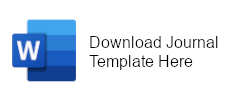How to Deal with Producing Very Mature Field: case L Field Pertamina
Abstract
As national oil and gas company that was founded 63 years ago, Pertamina deals with quite a lot of mature fields. L Field was first explored in 1925, which precede Pertamina. This field produces with wells that are mostly on more than 90% water cut. Dealing with this very mature filed is quite tricky. Selective work plan needs to be performed to achieve optimum results.
Three general approaches that are performed for L Field for the last three years are: decreasing water cut, balancing produced water and injection water, searching for remaining oil prospects. In order to decrease water cut, reversed coning treatment package was performed. The package consists of perforation cleaning using high pressure flush, paraffin solvent and relative permeability modifier stimulation, and reversed coning tool. Balancing injection and produced water was achieved by performing acidizing or solvent stimulation to injector wells to remove perforation plugging. RST log was utilized to search for remaining oil in a well.
Well M-36 was treated with reversed coning treatment package in 2019. This treatment was performed under performance based contract. Having performance based stipulation to handle mature field economically makes sense since production is not going to be really big. Powerwave tools was used to mechanically clean perforation. This tool increase fluid pressure that flows through its nozzles. Paraffin solvent stimulation then entered the picture to dissolve oil’s paraffin content. Relative permeability modifier was then pumped to block water movement in the reservoir. Last, mechanical reversed coning tool was installed to attempt breaking existing water coning shaped. After treatment, well M-36 produced oil more than twice its pretreatment production from 5 to 12 bbls/day. Injector stimulation was performed for seven wells, which had drops in injection rate. Out of these seven wells, 63% success ratio was achieved. This treatment successfully maintain L-Field Production. RST log was performed on well L-071. From RST, remaining oil from potential layers in this well was found and perforated. Its oil production was the highest in L field in the last 5 years with 80 bopd with water cut as low as 30%.
These three general approaches are proven to be quite effective in producing very mature field such as this L Field. When water handling was done right, any excess from injection rate compared to produced water can be used to perform production optimization. While waiting fordiscoveries on new prospects in a mature field the approaches in this paper can be used as a template work plans.



